Felix Adler
Appearance
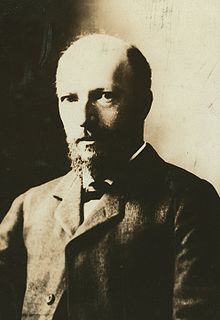
Felix Adler (13 August 1851 – 24 April 1933) was a Jewish professor of political and social ethics, rationalist, popular lecturer, religious leader and social reformer who founded the Ethical Culture movement, and is often considered one of the main influences on modern Humanism and Humanistic Judaism. He founded the Ethical Culture Fieldston School as a free kindergarten in 1878.
Quotes
[edit]Founding Address (1876)
[edit]Founding address of New York Society for Ethical Culture (15 May 1876)


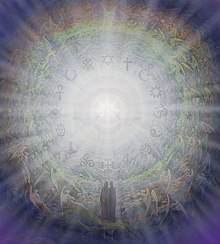
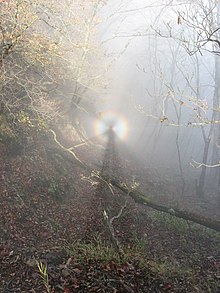

- When we are about to set forth on a path hitherto untried and likely to lead our lives in a new direction, it appears eminently desirable and proper that we should, in the first place, briefly review the public and private life of the day, in order to determine whether the essential elements that make up the happiness of states and individuals are all duly provided, and if not, where the need lies and how it can best be supplied.
- The moral improvement of the nations and their individual components has not kept pace with the march of intellect and the advance of industry. Before the assaults of criticism many ancient strongholds of faith have given way, and doubt is fast spreading even into circles where its expression is forbidden. Morality, long accustomed to the watchful tutelage of faith, finds this connection loosened or severed, while no new protector has arisen to champion her rights, no new instruments been created to enforce her lessons among the people. As a consequence we behold a general laxness in regard to obligations the most sacred and dear. An anxious unrest, a fierce craving desire for gain has taken possession of the commercial world, and in instances no longer rare the most precious and permanent goods of human life have been madly sacrificed in the interests of momentary enrichment.
- We have already transgressed the limit of safety, and the present disorders of our time are but precursors of other and imminent dangers. The rudder of our ship has ceased to move obedient to the helm. We are drifting on the seething tide of business, each one absorbed in holding his own in the giddy race of competition, each one engrossed in immediate cares and seldom disturbed by thoughts of larger concerns and ampler interests. Even our domestic life has lost much of its former warmth and geniality.
- It has been said that the modern world is divided between the hot and hasty pursuit of affairs in the hours of labor, and the no less eager chase of pleasure in the hours of leisure. But even our pleasures are calculated and business like. We measure our enjoyments by the sum expended. Our salons are often little better than bazaars of fashion.
- There is a great and crying evil in modern society. It is want of purpose. It is that narrowness of vision which shuts out the wider vistas of the soul. It is the absence of those sublime emotions which, wherever they arise, do not fall to exalt and consecrate existence.
- The very names that ought to be held up as luminaries of honor have become bywords of villainy, and the foul stench of corruption fills our public offices. See how the Nation, in this the festal epoch of her marriage to Liberty, stands blackened with the crimes of her first dignitaries, and hides her head in shame before the nations!
- Statesmen and Philanthropists are busy suggesting remedies for the cure of these great evils. But the renovation of our Civil Service, the reform of our Primaries, and whatever other measures may be devised, they all depend in the last instance upon the fidelity of those to whom their execution must be entrusted. They will all fail unless the root of the evil be attacked, unless the conscience of men be aroused, the confusion of right and wrong checked, and the loftier purposes of our being again brought powerfully home to the hearts of the people.
- Already complaints are multiplying on every hand that that most gracious quality of all that adorns the age of childhood — the quality of reverence — is fast fading from our schools and households; that the oldtime respect for father and mother is diminished, and grown rarer and more uncertain.
- The past speaks to us in a thousand voices, warning and comforting, animating and stirring to action. What its great thinkers have thought and written on the deepest problems of life, shall we not hear and enjoy? The future calls upon us to prepare its way. Dare we fail to answer its solemn summons?
- The exercises of our meeting are to be simple and devoid of all ceremonial and formalism. They are to consist of a lecture mainly, and, as a pleasing and grateful auxiliary, of music to elevate the heart and give rest to the feelings.
- We propose to entirely exclude prayer and every form of ritual. Thus shall we avoid even the appearance of interfering with those to whom prayer and ritual, as a mode of expressing religious sentiment, are dear. And on the other hand we shall be just to those who have ceased to regard them as satisfactory and dispensed with them in their own persons.
- Freely do I own to this purpose of reconciliation, and candidly do I confess that it is my dearest object to exalt the present movement above the strife of contending sects and parties, and at once to occupy that common ground where we may all meet, believers and unbelievers, for purposes in themselves lofty and unquestioned by any. Surely it is time that a beginning were made in this direction. For more than three thousand years men have quarreled concerning the formulas of their faith. The earth has been drenched with blood shed in this cause, the face of day darkened with the blackness of the crimes perpetrated in its name. There have been no direr wars than religious wars, no bitterer hates than religious hates, no fiendish cruelty like religious cruelty; no baser baseness than religious baseness. It has destroyed the peace of families, turned the father against the son, the brother against the brother.
- The freedom of thought is a sacred right of every individual man, and diversity will continue to increase with the progress, refinement, and differentiation of the human intellect. But if difference be inevitable, nay, welcome in thought, there is a sphere in which unanimity and fellowship are above all things needful. Believe or disbelieve as ye list — we shall at all times respect every honest conviction. But be one with us where there is nothing to divide — in action. Diversity in the creed, unanimity in the deed! This is that practical religion from which none dissents. This is that platform broad enough and solid enough to receive the worshipper and the "infidel." This is that common ground where we may all grasp hands as brothers, united in mankind's common cause.
- The Hebrew prophets said of old, to serve Jehovah is to make your hearts pure and your hands clean from corruption, to help the suffering, to raise the oppressed. Jesus of Nazareth said that he came to comfort the weary and heavy laden. The Philosopher affirms that the true service of religion is the unselfish service of the common weal. There is no difference among them all. There is no difference in the law. But so long have they quarreled concerning the origin of law that the law itself has fallen more and more into abeyance. For indeed, as it is easier to say. "I do not believe," and have done with it, so also it is easier to say, "I believe," and thus to bribe one's way into heaven, as it were, than to fulfill nobly our human duties with all the daily struggle and sacrifice which they involve.
- Why should there be any more the old dividing line between man and his brother-man? why should the fires of prejudice flare up anew between us? why should we not maintain this common ground which we have found at last, and hedge it round, and protect it — the stronghold of freedom and of all the humanities for the long years to come?
- The world is dark around us and the prospect seems deepening in gloom. and yet there is light ahead. On the volume of the past in starry characters it is written — the starry legend greets us shining through the misty vistas of the future — that the great and noble shall not perish from among the sons of men, that the truth will triumph in the end, and that even the humblest of her servants may in this become the instrument of unending good. We are aiding in laying the foundations of a mighty edifice, whose completion shall not be seen in our day, no, nor in centuries upon centuries after us. But happy are we, indeed, if we can contribute even the least towards so high a consummation. The time calls for action. Up, then, and let us do our part faithfully and well. And oh, friends, our children's children will hold our memories dearer for the work which we begin this hour.
The Religion of Duty (1905)
[edit]
- Theories of what is true have their day. They come and go, leave their deposit in the common stock of knowledge, and are supplanted by other more convincing theories. The thinkers and investigators of the world are pledged to no special theory, but feel themselves free to search for the greater truth beyond the utmost limits of present knowledge. So likewise in the field of moral truth, it is our hope, that men in proportion as they grow more enlightened, will learn to hold their theories and their creeds more loosely, and will none the less, nay, rather all the more be devoted to the supreme end of practical righteousness to which all theories and creeds must be kept subservient.
There are two purposes then which we have in view: To secure in the moral and religious life perfect intellectual liberty, and at the same time to secure concert in action. There shall be no shackles upon the mind, no fetters imposed in early youth which the growing man or woman may feel prevented from shaking off, no barrier set up which daring thought may not transcend. And on the other hand there shall be unity of effort, the unity that comes of an end supremely prized and loved, the unity of earnest, morally aspiring persons, engaged in the conflict with moral evil.- Ch. 10
Life and Destiny (1913)
[edit]



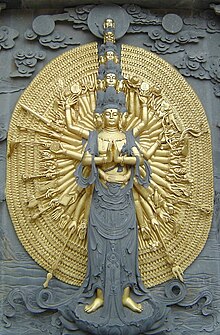


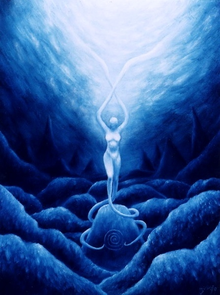
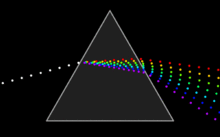






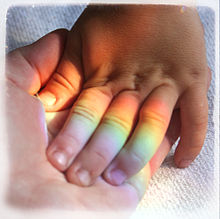

- Here are two kinds of light, the light on the hither side of the darkness and the light beyond the darkness. We must press on through the darkness and the terror of it if we would reach the holier light beyond.
We are here — no matter who put us here, or how we came here — to fulfil a task. We cannot afford to go of our own volition until the last item of our duty is discharged.- Section 1 : The Meaning of Life
- The fact that there is a spiritual power in us, that is to say, a power which testifies to the unity of our life with the life of others, which impels us to regard others as other selves — this fact conies home to us even more forcibly in sorrow than in joy. It is thrown into clearest relief on the background of pain.
In the glow of achievement we are apt to be full of a false self-importance. But in moments of weakness we realise, through contrast, the infinitely superior strength of the power whose very humble organs and ministers we are. It is then we come to understand that, isolated from it, we are nothing; at one with it, identified with it, we participate in its eternal nature, in its resistless course.- Section 1 : The Meaning of Life
- The divine in man is our sole ground for believing that there is anything divine in the universe outside of man. Man is the revealer of the divine.
At bottom, the world is to be interpreted in terms of joy, but of a joy that includes all the pain, includes it and transforms it and transcends it.
The Light of the World is a light that is saturated with the darkness which it has overcome and transfigured.- Section 1 : The Meaning of Life
- Religion is a wizard, a sibyl. She faces the wreck of worlds, and prophesies restoration. She faces a sky blood-red with sunset colours that deepen into darkness, and prophesies dawn. She faces death, and prophesies life.
- Section 2 : Religion
- It is the moral element contained in it that alone gives value and dignity to a religion, and only in so far as its teachings serve to stimulate and purify our moral aspirations does it deserve to retain its ascendency over mankind.
- Section 2 : Religion
- Ethical religion can be real only to those who are engaged in ceaseless efforts at moral improvement. By moving upward we acquire faith in an upward movement, without limit.
- Section 2 : Religion
- The symbols of religion are ciphers of which the key is to be found in moral experience. It is in vain we pore over the ciphers unless we possess the key.
To understand the meaning of a great religious teacher we must find in our own life experiences somewhat akin to his. To selfish, unprincipled persons whose heart is wholly set on worldly ends, what meaning, for instance, can such utterances have as these? "You must become like little children if you would possess the kingdom of heaven;" "You must be willing to lose your life in order to save it;" "If you would be first you must consent to be last." To the worldly-minded such words convey no sense whatever; they are, in fact, rank absurdity.?- Section 2 : Religion
- Of the origin of things we know nothing, and can know nothing. Perfection does not reveal itself to us as existent in the beginning; but as something that ought to be, something new which we are to help create. Somehow the secret of the universe is hidden in our breast. Somehow the destinies of the universe depend upon our exertions.
- Section 2 : Religion
- The Infinite, from which comes the impulse that lead us to activity, is not the highest Reason, but higher than reason; not the highest Goodness, but higher than goodness.
- Section 2 : Religion
- There is a city to be built, the plan of which we carry in our heads, in our hearts. Countless generations have already toiled at the building of it. The effort to aid in completing it, with us, takes the place of prayer. In this sense we say, "Laborare est orare."
- Laborare est orare.: To work is to pray. Section 2 : Religion
- As the light of morning strikes now one peak and then another, some being illuminated while others are in the shadow, so the light of the essential moral principle shines now upon one duty and then upon another, while others are in the shadow.
- Section 4 : Moral Ideals
- In order to join vigorously in the moral work of the world I must believe that somehow the best I can accomplish will endure, will leave its trace on things, will aid the final consummation.
- Section 4 : Moral Ideals
- Gladness, in some instances, springs from a natural buoyancy of temperament, and is quite consistent with shallowness and superficiality of character. In other cases it is coincident with the swift flow of the currents of the blood, and ceases when the stream flows more slowly and begins to stagnate. Or it is due to gifts which an exceptional good fortune showers into the laps of favoured mortals. Gladness of this sort comes with happiness and departs with it.
But the purified gladness of which I speak is not dependent on these accidents. It is the mark of the ripest wisdom, and is based on the conviction, gained through experience, that life is worth living, that the victory is assured, and that the ends we pursue are of such excellence as to be incapable of ultimate defeat.- Section 4 : Moral Ideals
- The moral ideal would embrace the whole of life. In its sight nothing is petty or indifferent. It touches the veriest trifles and turns them into shining gold. We are royal by virtue of it, and like the kings in the fairy tale, we may never lay aside our crowns.
The moral order never is, but is ever becoming. It grows with our growth.- Section 4 : Moral Ideals
- We call him a hero who maintains himself, single-handed, against superior numbers. We call him a master-horseman who sits a fiery and vicious steed, guiding him at will. And in like manner, we call him a moral hero who conquers the enemies within his own breast — and we admire and revere the soul which can ride its own passions and force them into obedience to the dictates of reason.
- Section 4 : Moral Ideals
- Love is the expansion of two natures in such fashion that each include the other, each is enriched by the other.
Love is an echo in the feelings of a unity subsisting between two persons which is founded both on likeness and on complementary differences. Without the likeness there would be no attraction; without the challenge of the complementary differences there could not be the closer interweaving and the inextinguishable mutual interest which is the characteristic of all deeper relationships.- Section 5 : Love and Marriage
- Man is like a tree, with the mighty trunk of intellect, the spreading branches of imagination, and the roots of the lower instincts that bind him to the earth. The moral life, however, is the fruit he bears; in it his true nature is revealed.
It is the prerogative of man that he need not blindly follow the law of his natural being, but is himself the author of a higher moral law, and creates it even in acting it out.- Section 6 : Higher Life
- There is a difficulty in the way of teaching the higher life, due to the fact that only those who have begun to lead it can understand the meaning of it. Nevertheless, all men can be induced to begin to lead it. Though they seem blind, their eyes can be opened so as to see. Deep down in every human heart is the seed of a diviner life, which only needs the quickening influence of right conditions to germinate.
- Section 6 : Higher Life
- It may be impossible for a man by merely willing it to add wings to his body, but it is possible for any man, by merely willing it, to add wings to his soul. This perennial miracle of the moral nature is capable of happening at any time.
- Section 6 : Higher Life
- An ideal is a port toward which we resolve to steer. We may not reach it. The mere fact that our goal is definitely located does not suffice to conduct us thither. But surely we shall thus stand a better chance of making port in the end than if we drift about aimlessly, the sport of winds and tides, without having decided in our own minds in what direction we ought to bend our course.
The moral law is the expression of our inmost nature, and when we live in consonance with it we feel that we are living out our true being.- Section 6 : Higher Life
- By what sort of experience are we led to the conviction that spirit exists ? On the whole, by searching, painful experience. The rose Religion grows on a thorn-bush, and we must not be afraid to have our fingers lacerated by the thorns if we would pluck the rose.
- Section 7 : Spiritual Progress
- Why in this world of ours there should be so much suffering no one knows. But this we know; that, evil existing, the world being such as it is, we can win from evil, if we choose, an inestimable good, namely — the conviction that there is in us a power not of the senses, the conviction that spirit exists, and exists in us.
A sceptic may say that in a world ideally conceivable we might have secured this precious conviction without the necessity of undergoing the ordeal of pain. To which the reply is: that in a world ideally conceivable what he says may be true; but in the world as it is, with which alone we are concerned, we have ample cause for gratitude that we can turn suffering to such far-reaching account, that we can distil from the bitter root this divine elixir; that by manfully bearing the pains of the senses, inexplicable though they be, we are able to gain the certainty that a power not born of the senses exists in us, operates in us. It is this effect of pain that accounts for the serenity and peace of many patient sufferers, a peace and a serenity which surround their bed of misery with a kind of halo.- Section 7 : Spiritual Progress
- It is written that the last enemy to be vanquished is death. We should begin early in life to vanquish this enemy by obliterating every trace of the fear of death from our minds. Then can we turn to life and fill the whole horizon of our souls with it, turn with added zest toall the serious tasks which it imposes and to the pure delights which here and there it affords.
- Section 8 : Suffering and Consolation
- When the light of the sun shines through a prism it is broken into beautiful colours, and when the prism is shattered, still the light remains. So does the life of life shine resplendent in the forms of our friends, and so, when their forms are broken, still their life remains; and in that life we are united with them; for the life of their life is also our life, and we are one with them by ties indissoluble.
- Section 8 : Suffering and Consolation
- It is the nature of the noble and the good and the wise that they impart to us of their nobility and their goodness and their wisdom while they live, making it natural for us to breathe the air they breathe and giving us confidence in our own untested powers. And the same influence in more ethereal fashion they continue to exert after they are gone.
- Section 8 : Suffering and Consolation
- The condition of all progress is experience. We go wrong a thousand times before we find the right path. We struggle, and grope, and hurt ourselves until we learn the use of things, and this is true of things spiritual as well as of material things. Pain is unavoidable, but it acquires a new and higher meaning when we perceive that it is the price humanity must pay for an invaluable good.
- Section 8 : Suffering and Consolation
- The consolations of the moral ideal are vigorous. They do not encourage idle sentiment. They recommend to the sufferer action. Our loss, indeed, will always remain loss, and no preaching or teaching can ever make it otherwise. But the question is whether it shall weaken and embitter, or strengthen and purify us, and lead us to raise to the dead we mourn a monument in our lives that shall be better than any pillared chapel or storied marble tomb. The criterion of all right relations whatsoever is that we are helped by them. And so, too, the criterion of right relations to the dead is that we are helped, not weakened and disabled, by them.
- Section 8 : Suffering and Consolation
- Let us learn from the lips of death the lessons of life. Let us live truly while we live, live for what is true and good and lasting. And let the memory of our dead help us to do this. For they are not wholly separated from us, if we remain loyal to them. In spirit they are with us. And we may think of them as silent, invisible, but real presences in our households.
- The bitter, yet merciful, lesson which death teaches us is to distinguish the gold from the tinsel, the true values from the worthless chaff.
The terrible events of life are great eye-openers. They force us to learn that which it is wholesome for us to know, but which habitually we try to ignore — namely, that really we have no claim on a long life ; that we are each of us liable to be called off at any moment, and that the main point is not how long we live, but with what meaning we fill the short allotted span — for short it is at best.
- The right for the right's sake is the motto which everyone should take for his own life. With that as a standard of value we can descend into our hearts, appraise ourselves, and determine in how far we already are moral beings, in how far not yet.
- Section 9 : Ethical Outlook
- The question what to believe is perhaps the most momentous that anyone can put to himself. Our beliefs are not to be classed among the luxuries, but among the necessaries of existence. They become particularly important in times of trouble. They are like the life-boats carried by ocean ships. As long as the sea is smooth and there is every appearance of a prosperous voyage, the passengers seldom take note of the boats or inquire into their sea-worthiness. But when the storm breaks and danger approaches, then the capacity of the boats and their soundness become matters of the first importance.
- Section 9 : Ethical Outlook
- Ethical religion affirms the continuity of progress toward moral perfection. It affirms that the spiritual development of the human race cannot be prematurely cut off, either gradually or suddenly; that every stone of offence against which we stumble is a stepping-stone to some greater good ; that, at the end of days, if we choose to put it so, or, rather, in some sphere beyond the world of space and time, all the rays of progress will be summed and centred in a transcendent focus.
- Section 9 : Ethical Outlook
- There may be, and there ought to be, progress in the moral sphere. The moral truths which we have inherited from the past need to be expanded and restated. In times of misfortune we require for our support something of which the truth is beyond all question, in which we can put an implicit trust, " though the heavens should fall." A merely borrowed belief is, at such time, like a rotten plank across a raging torrent. The moment we step upon it, it gives way beneath our feet.
- Section 9 : Ethical Outlook
- Good deeds remain good, no matter whether we know how the world was made or not. Vile deeds are vile, no matter whether we know or do not know what, after death, will be the fate of the doer. We know, at least, what his fate is now, namely, to be wedded to the vileness.
The question for anyone to decide, who hesitates between good and evil, is whether he aspires to be a full-weight man, or merely the fragment, nay, the counterfeit of a man. Only he who ceaselessly aims at moral completeness is, in the true sense, a human being.- Section 9 : Ethical Outlook
- There is a universal element in man which he can assert by so acting as if the purpose of the Universe were also his purpose. It is the function of the supreme ordeals of life to develop in men this power, to give to their life this distinction, this height of dignity, these vast horizons.
- Section 9 : Ethical Outlook
- We need to feel that no effort is ever wasted, that no honest reaching out toward the good is vain, that the great All is pressing forward toward a transcendent goal. And there is but a single way to obtain this conviction. It is not possible to enter into the nature of the Good by standing aloof from it — by merely speculating upon it. Act the Good, and you will believe in it. Throw yourself into the stream of the world's good tendency and you will feel the force of the current and the direction in which it is setting. The conviction that the world is moving toward great ends of progress will come surely to him who is himself engaged in the work of progress.
By ceaseless efforts to live the good life we maintain our moral sanity. Not from without, but from within, flow the divine waters that renew the soul.
- The ethical element of religion has ever been its truly vital and quickening force. It is this which lends such majesty to the speeches of the Prophets, which gives such ineffable power and sweetness to the words of Jesus. Has this ethical element become less important in our age ? Has the need of accentuating it become less imperative?
To-day, in the estimation of many, science and art are taking the place of religion. But science and art alike are inadequate to build up character and to furnish binding rules of conduct.
We need also a clearer understanding of applied ethics, a better insight into the specific duties of life, a finer and a surer moral tact.
- It is the business of the preacher, not only to state moral truths, but to inspire his hearers with a realising sense of their value, and to awaken in them the desire to act accordingly. He can do this only by putting his own purpose as a yeast into their hearts. The influence of the right sort of preachers cannot be spared. The human race is not yet so far advanced that it can dispense with the impulses that come from men of more than average intensity of moral energy.
Let us produce, through the efficacy of a better moral life and of a deeper moral experience, a surer faith in the ultimate victory of the good.
Let us found religion upon a basis of perfect intellectual honesty. Religion, if it is to mean anything at all, must stand for the highest truth. How then can the cause of truth be served by the sacrifice, more or less disguised, of one's intellectual convictions?
- To those who are longing for a higher life, who deeply feel the need of religious satisfactions, we suggest that there is a way in which the demands of the head and the heart may be reconciled. Religion is not necessarily allied with dogma, a new kind of faith is possible, based not upon legend and tradition, not upon the authority of any book, but upon the moral nature of man.
- Theologians often say that faith must come first, and that morality must be deduced from faith. We say that morality must come first, and faith, to those whose nature fits them to entertain it, will come out of the experience of a deepened moral life as its richest, choicest fruit.
Precisely because moral culture is the aim, we cannot be content merely to lift the mass of mankind above the grosser forms of evil. We must try to advance the cause of humanity by developing in ourselves, as well as in others, a higher type of manhood and womanhood than the past has known.
To aid in the evolution of a new conscience, to inject living streams of moral force into the dry veins of materialistic communities is our aim.
We seek to come into touch with the ultimate power in things, the ultimate peace in things, which yet, in any literal sense, we know well that we cannot know. We seek to become morally certain — that is, certain for moral purposes — of what is beyond the reach of demonstration. But our moral optimism must include the darkest facts that pessimism can point to, include them and transcend them.- Section 9 : Ethical Outlook
- We should teach our children nothing which they shall ever need to unlearn; we should strive to transmit to them the best possessions, the truest thought, the noblest sentiments of the age in which we live.
- Section 9 : Ethical Outlook
- The frontier of the higher life is everywhere contiguous to the common life, and we can cross the border at any moment. The higher life is as real as the grosser things in which we put our trust. But our eyes must be anointed so that we may see it.
The office of the religious teacher is to be a seer, and to make others see, and thus to win them into the upward way.- Section 9 : Ethical Outlook
- We should seek to free the moral life from the embarrassments and entanglements in which it has been involved by the quibbles of the schools and the mutual antagonisms of the sects; to introduce into it an element of downrightness and practical earnestness; above all, to secure to the modern world, in its struggle with manifold evil, the boon of moral unity, despite intellectual diversity.
- Section 9 : Ethical Outlook
- I believe in the supreme excellence of righteousness; I believe that the law of righteousness will triumph in the universe over all evil; I believe that in the attempt to fulfil the law of righteousness, however imperfect it must remain, are to be found the inspiration, the consolation, and the sanctification of human existence.
We live in order to finish an, as yet, unfinished universe, unfinished so far as the human, that is, the highest part of it, is concerned. We live in order to develop the superior qualities of man which are, as yet, for the most part latent.- Section 9 : Ethical Outlook
An Ethical Philosopy of Life (1918)
[edit]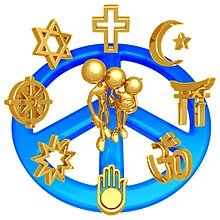
- What I state as certain is certain for me. It has approved itself as such in my experience. Let others consult their experience, and see how far it tallies with that which is here set forth.
- Book I, Ch. 1 "Prelude"
- The Supreme Ethical Rule: Act So As To Elicit the Best In Others and Thereby In Thy Self.
- Book III, Ch. 7, Title of the chapter. This has sometimes appeared in modernized or paraphrased forms:
- Always act so as to elicit the best in others, and thereby oneself.
- Always act so as to elicit the best in others, and thereby one's Self.
- Always act so as to elicit the best in others, and thereby in yourself.
- Act so as to encourage the best in others, and by so doing you will develop the best in yourself.
- The peace that passeth understanding is that which comes when the pain is not relieved, which subsists in the midst of the painful situation, suffusing it, which springs out of the pain itself, which shimmers on the crest of the wave of pain, which is the spear of frustration transfigured into the shaft of light. It is upon those we love that we must anchor ourselves spiritually in the last moments. The sense of interconnectedness with them stands out vividly by way of contrast at the very moment when our mortal connection with them is about to be dissolved. And the intertwining of our life with theirs, the living in the life that is in them, is but a part of our living in the infinite manifold of the spiritual life. The thought of this, as apprehended, not in terms of knowledge, but in immediate experience, begets the peace that passeth understanding. And it is upon the bosom of that peace that we can pass safely out of the realm of time and space.
- Book IV, Ch. 10 "The Last Outlook On Life"
Some Characteristics of the American Ethical Movement (1925)
[edit]
- Spiritual evolution is the progressive advance of mankind toward a state of things in which the light of ethical perfection shall be reflected from the face of human society; that is, in which all men shall live and move and have their being in mutually promoting the highest life of each and all. It means that the object of social reformation shall not be a mere change in the conditions under which men live, but a change in human nature itself. It means that we shall look forward consciously to the breaking forth of new powers in ourselves, to the release, through our own efforts, of capacities dimly latent in us.
- The radiant future stretches forth its arms toward us, and binds us to be willing servants to its work, willingly to accept those limitations of the individual will which are indispensable in the service of a far-off cause, a service which at the same time disciplines and ennobles the individual himself.
Quotes about Adler
[edit]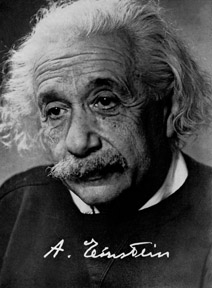
- I believe, indeed, that overemphasis on the purely intellectual attitude, often directed solely to the practical and factual, in our education, has led directly to the impairment of ethical values. I am not thinking so much of the dangers with which technical progress has directly confronted mankind, as of the stifling of mutual human considerations by a "matter-of-fact" habit of thought which has come to lie like a killing frost upon human relations. … The frightful dilemma of the political world situation has much to do with this sin of omission on the part of our civilization. Without "ethical culture," there is no salvation for humanity.
- Albert Einstein, in "The Need for Ethical Culture" celebrating the seventy-fifth anniversary of the Ethical Culture Society founded by Adler (5 January 1951).
External links
[edit]Categories:
- Academics from Germany
- Activists from the United States
- Social activists
- Academics from the United States
- Humanists
- Religious leaders from the United States
- Jews from the United States
- 1851 births
- 1933 deaths
- Socialists from the United States
- German Jews
- Socialists from Germany
- Anti-imperialists
- Jewish socialists
- Rationalists
- Immigrants to the United States
- People from New York (state)


